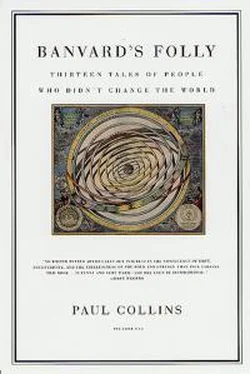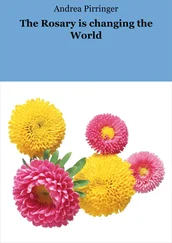Vortigern is not a bad play. William held his inept Ye Olde Sppellingge in check enough that the play script looks convincingly Shakespearean, and it has all the grand sweep of battle and gore that one could desire from an early Shakespeare tragedy. But there are no subplots, no false leads, no irony, and not the faintest leavening of humor. Despite the Fool in the cast, Vortigern is humorless, whereas even in his darkest plays, Shakespeare managed to nudge the audience with a bit of bitter laughter. Still, in an aching soliloquy by Aurelius, newly arrived in Britain to reclaim the throne from Vortigern, young William's gifts were obvious:
O God! why shou'd I, a mere speck on
earth, Tear thousands from their wives, children, and homes! O! wherefore from this transitory sleep, That now doth steal from them their inward cares, Should I send thousands to cold dreary death? 'Tis true, I am a King, and what of that? Is not life dear to them, as 'tis to me? O! peasant, envy not the prince's lot; Thy page in life's great book is not foul
charg'd, And like to ours besmeare'd with dying breaths. O! had I lives myself enough to answer The ravenous and greedy jaws of death, That will on these my friends, my soldiers, Such havoc make, and wanton gluttony! Father of mercy, great God, spare this blood! And if I must alone receive the crown, Bedeck'd with purple gore, I here resign
it.
Fine words--but William's most brilliant lines could not save him now.
On March 31 the sword fell. Edward Malone had not been idle in the intervening three months--An Inquiry into the Authenticity of Certain Miscellaneous Papers and Legal Instruments had snowballed from a short pamphlet into a 424-page avalanche of utterly damning evidence against the papers. Malone presents his Inquiry as a courtroom drama, in which Malone is presenting exhibit after exhibit of evidence to the judging reader, more than backed up by two hundred voluminous footnotes. He attacks the papers for their spelling, for the use of words and phrases that didn't exist in Shakespeare's time, and for the disparity between known signatures and the ones Ireland had forged. Malone spared no cost to take each Ireland document, one by one, and tear it to pieces: he filled his book with expensive foldout plates and illustrations to compare true and false signatures side by side. He could hardly hide his scorn; when quoting from Shakespeare's love poem to Anne Hathaway, Malone interrupts himself to spit, "I shall not therefore sicken your Lordship with any more of this namby-pamby stuff."
Actually, much of Malone's evidence was wrong. Many claims that certain words were not in use during Shakespeare's time were later disproved. And yet it hardly mattered. Even if all of Malone's criticisms were wrong--and they were not--he had disillusioned London from its infatuation with the papers. With this book, Malone was also crushing the career of the most talented young writer in London. But Malone hardly knew this. Even now, nobody imagined William as the true source of the forgeries.
A crowd gathered outside the Theatre Royal hours before curtain time. It was a Saturday afternoon in the springtime, and the theatergoers were well liquored and pressing so furiously to get in that the Royal's staff had to barricade the doors. Dozens of hired boys shouted their way through the mob, dispensing a printed handbill from Samuel decrying the "malevolent and impotent attack" by Malone, and requesting that "Vortigern may be heard with that candour that has ever distinguished a British Audience."
The admission gate opened, and the distinguished British Audience stampeded into the Theatre Royal, pitching patrons headlong into the seating and onto the floor. Doorkeepers were pushed aside, and gate crashers poured in, ready for a bit of free play-bashing. Amid the chaos, Samuel made his way inside and took a seat in the center box. Supporters cheered him from one side of the theater, and detractors jeered from another.
Young William, not keen on sitting among thousands of half-sober partisans, quietly slipped backstage and into the green room. Nobody took much notice of his departure. Curtain call came, and actors and actresses came and went. Only one, Fanny Jordan, bothered to speak to the lad. She had always been a favorite of William's; unbeknownst to her, "Shakespeare" had actually written some of the play's dialogue and songs specifically for her. But she did know that William was miserable and nervous, and did her best to soothe him during her breaks between scenes.
--It is going well, she told him during the third act.
William believed her. But he did not believe in Vortigern anymore. "It will not be represented a second time," he predicted.
Fanny had been telling the truth. Although the actor fumbling through the play's prologue had been ridiculed by the crowd to the point of nearly breaking apart in anguish--a standard hazing in Georgian theaters--the first two acts of Vortigern proceeded smoothly enough, with the curtain closing both times to applause from the audience. Not everyone in the audience believed it to be Shakespeare, but at least they all believed it to be a good play for their two shillings. Samuel could look about the theater from his box seat and see a motley cross-section of London, MP'S and pickpockets alike, enjoying the play that he'd discovered.
And then Charles Dignum walked onstage. Dignum was not a distinguished actor.
He had a high reedy voice utterly inappropriate to his role as a baron, and as he spoke the audience began to snigger, the giggling welling up and up until Dignum had to yell the line
Let them bellow on!
in his flouncing tenor. The audience burst out in laughter, wiping their eyes and applauding the ludicrous acting for minutes on end, bringing the play to a complete halt. John Kemble came onstage and pleaded with them to let the play proceed, and an increasingly drunk supporter-Charles Sturt, member of Parliament--yelled at the audience to shut up. The laughter finally died down, but only just, and Act III staggered on.
Act IV has the play's climactic battle scenes between the Saxons and the Scots. Sheridan had maliciously cast a bulbous-nosed comic actor named Phillimore in the role of the Saxon general. After falling in battle, Phillimore sprawled his body across the stage, but not where he had been told to during rehearsal. As the heavily weighted curtain descended on the scene, it landed full on Phillimore's ample gut, leaving half his body in front of and half behind the curtain.
Ooooooooohhhhhh ..., he groaned.
This was just too much. The audience hooted with laughter that increased with each groan and yodel from Phillimore and his twitching body. Sturt, MP, became so enraged that he leaped from his box onto the stage and drunkenly grabbed Phillimore by the costume to drag him away. Audience members doubled over in comic agony. As Act V proceeded and supporters in the box seats applauded it, others in the theatre drunkenly pelted them with oranges. Sturt, a supporter but now disgusted with the hash the actors were making of the play, picked up the oranges from around his seat, peeled them with his pocketknife, and then flicked orange peel at the actors as they spoke their lines.
It got worse.
In the midst of Act V, detractors waited for a prearranged signal--a line which would set off a riot. They got it in scene 2 with the line And when this solemn mock'ry is ended ...
Suddenly, William recalled, "the most discordant howl echoed from the pit that ever assaulted the organs of hearing." It roared on for ten minutes until Kemble, the lead in the play, started by redelivering the exact same line, bringing down the house all over again. Sturt, who though only an MP was now as drunk as a lord, stood up in his box and bent over to moon the baying mob, for which he was rewarded with another volley of oranges.
Читать дальше











